by Alex Shtaerman
Hailing from Kingston, Jamaica, Tony “CD” Kelly has produced more crossover hits than any other dancehall producer in the history of the dancehall/reggae genre. Starting his career with a stint at Bob Marley’s legendary Tuff Gong Studios, Tony crafted tracks for Shabba Ranks, Patra, Mad Cobra and Snow in the early ’90’s creating a dancehall sound that was more accessible to a whole new audience of Hip-Hop and R&B fans. Tony Kelly’s sound has been instrumental in creating hit songs for artists such as Patra, Supercat, Sean Paul, Shaggy, Wayne Wonder, Sasha, TOK, Beenie Man and Baby Cham, to name a few.
In 2004, Def Jam’s Def Jamaica compilation album, which Tony co-executive produced, received a Grammy nomination for Best Reggae Album. His own record label K..Licious Music has also logged many successful releases, led by its popular Triple Spin compilation series. The soon to be released K..Licious Riddim Collection will feature eighteen brand new songs from Shaggy, Bounty Killer and Wayne Wonder, among others. At the moment Tony “CD” Kelly is busy working in the studio with a who’s who of international dancehall stars including, Shaggy, Wayne Wonder, Elephant Man, Beenie Man and up and coming R&B talent Xavier Aeon. We had a chance to speak to Tony about his humble beginnings, his quest to bring dancehall to the mainstream and how the music has evolved and changed since he’s been in the game.
RIOTSOUND.COM: A lot of people in the US do not realize how different Jamaica is from the United States; what’s it like growing up in Jamaica?
TONY “CD” KELLY: Jamaica is very different from America. Jamaica in terms of landscape looks more like Hawaii. [My wife and I] went to Maui for our honeymoon and it reminded us so much of Jamaica. Jamaica is not as commercial as America. It’s warm but we have a problem; we’re a third world country and it’s a struggle. There is only so much you can do to get by. In terms of myself and my outlook – I realized from a young age that you cannot work for other people to achieve certain things or live the way you would want. From the get go I decided that I would try to do something on my own. That’s really how everything kind of came about. Also, growing up in the ghetto is tough because the only way out from a kid’s point of view is whatever they are doing around there – either they’re going to be bad guys or sell drugs; or maybe you’re going to be a politician or you are just going to party your way out.
RIOTSOUND.COM: What music did you listen to?
TONY “CD” KELLY: Everything; disco music, I used to love the ’70’s and ’80’s disco music, soul music, rock music, R&B. I used to listen to Teddy Pendergrass, Aretha Franklin – pretty much everybody coming up. You hear a bunch of stuff in Jamaica – you might think that if you go to Jamaica you’ll just hear Jamaican music – not so; you’ll hear a bunch of American music, a bunch of country and western music; you hear a lot of reggae but you still hear a lot of the other music so you kind of know what’s going on. It’s probably a month, two months or half a year late but you still hear it. So you grow up without mindsets – its like – oh, is that how America music sounds? – that’s cool, you know.
What I used to do is try to find a better way of expressing whatever I am saying, a newer way. So by the time people catch up to what I’m doing, I am already on to the next style. So it kind of fit me to be a trendsetter. Somebody always has to follow my music; I don’t follow people.
RIOTSOUND.COM: You started your career as an assistant engineer at Jamaica’s legendary Tuff Gong Studios; what was that like?
TONY “CD” KELLY: Tuff Gong is Bob Marley’s studio and starting there is what really carved me out to be a good enough producer and it gave me a good ear. I was taught by two of the best engineers in Jamaica, Scientist and Errol Brown. Errol Brown was Bob Marley’s own engineer. They taught me everything from EQing to micing live drums to disciple to keeping the place clean and keeping the music clean, managing time and knowing that the artists are the ones you need to please and also how to please the consumers of the music. They taught me a bunch of things – basically that you need to please the artists and the producers but at the same time you got to make sure that whatever you’re doing and how it sounds makes people move.
So I came up like that, with that mindset. In fact, when I started there I couldn’t even sit around the mixing board, I had to stand up. Every morning I had to sweep up the yard and clean up the studio [laughs]. I was like damn! this is hard. I didn’t even want to sweep up the yard at my own house, my mother had to whoop me. But I had to go and do that at Tuff Gong. Coming up at that time, the money they were paying was nowhere near what it is now. But I started out with no money, I just wanted to learn and it was like a dream to go in a studio and be around artists.
One day Errol Brown or Scientist, I forget which one of them told me this – they said try to make sure that your work is impressive so you will get tips. It was a big thing in Jamaica; when a producer or artist works with you and they like your vibe they tip you. By the time I started to be an assistant engineer, my tips were five or six times bigger than my salary. I used to bring my friends from my ghetto and my corner to teach them. I used to pay them off my salary, out of the artists’ tips – I wanted to help other kids get out of the ghetto. One of the kids was my brother [Dave Kelly], and he was one of the ones that I trained. From there my mindset has always been – you gotta do something to impress people – you gotta do something with a discipline, with a cleanness – a good sound, the right sound to make people move. So I came up just like that.
RIOTSOUND.COM: The Def Jamaica compilation – how did it come together and what role did you have with the album?
TONY “CD” KELLY: Cristy Barber, a very very good friend of mine, she works in Tuff Gong and she is situated over by Def Jam. Heineken had an agreement with Def Jam at the time, they do the all-stars every year and they wanted to do one on the reggae tip. Randy Acker and Cristy came along and decided they were going to do it and automatically Cristy is going to call me because she thinks I’m the best producer out there. Whatever she’s involved with I am totally involved with and anything I’m involved with she’s involved with. She’s just that good of a person to reggae music and I’m also there.
There were songs that needed to be redone – like Anything Goes was an original by somebody else but they didn’t like it and they wanted me to remix it; so I just took the voice off it and Wayne Wonder also came in to do his part on the song. Then I had to go back in and I had Nore and Capone revoice it. I also worked on the Na Na Na Na track. I oversaw my brother’s mixing ’cause he was working on some of it – so I went up and made sure everything was good. That was a big thing for me to have reggae fused with R&B and Hip-Hop. That was a very big thing for me – anything that I do I would not allow the reggae people to come out mediocre, I wanted them to come out at the highest class and quality that they could. So I made sure any of the songs I worked on, the reggae was better or on par with what the Hip-Hop artists were doing.
RIOTSOUND.COM: How did you feel when you found out Def Jamaica was nominated for a Grammy – was it something that came as a surprise – or were you not so surprised given your past success?
TONY “CD” KELLY: It was a bit of a surprise but at the same time I was kind of expecting it ’cause I am one of the Grammy members. I get the thing that they send out where you vote on the nominations, as far as who’s going to get nominated. So I saw it on the list and I was like – whoa, I didn’t know that Def Jamaica would make it on here. But when I looked at the list, there were not that many releases that were well known, at least to me. So it looked like it might have even been a winner. But then we looked and we saw Toots & The Maytals – then I saw him on Saturday Night Live and I saw him on Jay Leno, so I knew he was one of the favorites. But that was an accomplishment, to know that you could approach something like that and have people see it and want to nominate it for a Grammy.
RIOTSOUND.COM: Recently we’ve been hearing more and more about reggaeton; what’s that sound all about – it seems there’s quite a buzz about it lately?
TONY “CD” KELLY: Reggaeton is partly reggae – reggae instrumentation and I think they mostly rap in Spanish. Some of them do the reggae chants on it but most of it is rapping in Spanish. It’s nice; it’s good to know somebody else is adapting a part of your culture and integrating it into their culture. I’ve been approached by several of the reggaeton people and they are really nice and they want to pay back respect to Jamaica for giving them their little identity and everything. So it’s good; but if I were to do something in reggaeton I’m going to be adding a little more flavor to it and change up a few things. They use the same drums and the same patterns over and over but I heard based on the culture that it’s Spanish people, whatever they like, they stick to it; that’s just what I heard.
RIOTSOUND.COM: In spite of your success with bringing dancehall into the mainstream, do you feel that record labels today are overlooking the type of music you represent?
TONY “CD” KELLY: Yes they are overlooking in terms of – they don’t know this music, so it’s a judgment call on them. If you flop on one signing you could get dropped. You flop on one signing you get fired. Most of these record companies’ mindsets is looking like that – that’s why I have to give big up and respect to Craig Kallman from Atlantic because he went out on a limb for reggae music with Sean Paul, Wayne Wonder, Elephant Man and others.
RIOTSOUND.COM: If a dancehall artist such as Sean Paul, for example, blows up in the United States, is that artist also automatically a big hit in Jamaica, or not always?
TONY “CD” KELLY: Yes, no matter where you come from or where you blow up, in Jamaica everybody is going to be very supportive and very warm. Sean Paul was big in Jamaica before and this was just another stepping stone and everybody gives him his respect. Shaggy is really big and Shaggy didn’t blow up from Jamaica, Shaggy blew up here in America and Shaggy has become a household name in Jamaica. Shaggy’s family is in Jamaica and he’s always in Jamaica. All these people get their accolades and they get the praise and everything – Jamaica loves that.
RIOTSOUND.COM: Do fans in Jamaica ever resent the infusion of Hip-Hop into dancehall in a way some Hip-Hop fans may resent the infusion of R&B into rap music here in the US?
TONY “CD” KELLY: Not really, I have never come across an incident where that happened. If you go to a party in Jamaica they even have crazy dance music nights, you see people dancing with lights and everything; you won’t believe that it goes on. But we have a lot of people and many different genres. They have people down there doing reggae rock; it’s reggae with a rock twist to it. We have people doing R&B down there, people doing Hip-Hop down there; everybody does their thing – in Jamaica they don’t resent that much; they don’t resent it like that. You’d have to go way left and just do something that’s really wrong and then they’ll go after you. They like everything – 50 cent, Lil’ John, all these artists are big down there, crazy big.
RIOTSOUND.COM: You have worked with so many prominent dancehall artists and crafted so many hits; what direction do you want to take your career in at this point – is there anything that you still want to do that you have not done?
TONY “CD” KELLY: Well, I’ve hit the top 10, the top 5 on the Billboard Hot 100; I want to consistently hit it. I’ve hit radio a lot commercially and I want to do that regularly. I think it’s just a matter of time before that happens so I am just going to keep doing what I do and it will happen.
RIOTSOUND.COM: You have been around dancehall and reggae for a long time; how have things changed and how has the music evolved?
TONY “CD” KELLY: Reggae has changed and has evolved; within dancehall the tempo is way up now. Everything has changed; the style has changed, dancehall is all about style. When Elephant Man came out it was all about dancing, so they used to sing about all these dances, dances and more dances – now I think it’s probably going back to culture. It’s a revolving door, it goes right around and comes back. I’ve been out since ’92 from Patra days and I remember when dancehall hit the mainstream with Shabba Ranks and everybody. I don’t think Jamaica was ready for it in terms of the professionalism. We didn’t have enough people who had lawyer skills and managers didn’t know much, for many people in the business it was more like a hobby.
The artists were ready for the exposure but it’s their team that was the problem. That’s why Shabba Ranks and Patra and [Mad] Cobra were successful, they had specialists working with them that knew their stuff. But other people who kept changing lawyers and kept changing managers, that was putting a bad taste in the labels’ mouth, so they didn’t want to mix with Jamaicans. Now it’s a lot different; everybody got better lawyers and managers down there; or people are looking outside for lawyers. My lawyer is up here [in the US]. We always tried to have that professionalism and to have a good team behind us. Nowadays the whole level of professionalism has been stepped up and it can only get better.
RIOTSOUND.COM: What projects do you have on the horizon – what should the fans be looking out for?
TONY “CD” KELLY: I have a bunch. I just finished working with Shaggy, we did like four or five tracks for his album. I am working with Heather Headley; we did two songs with her and one song with her and Shaggy. As we speak, Wayne Wonder is in the studio, who I am working with. Last week I did Assassin; I am also working with this Jewish kid Elan. Next week, Monday and Tuesday I am working with Elephant Man. I just rescheduled with Sean Paul, its on hold; I don’t know when we are going to go in the studio to work. I just found out today I will be working with Beenie Man in April. So there’s a whole bunch of stuff.
Also, I am coming again with my K..Licious Music label. I am working with this new R&B artist by the name of Xavier Aeon and I think that will probably come out around June or July, somewhere around there. You look out for that kid, that kid is crazy! He’s no joke.









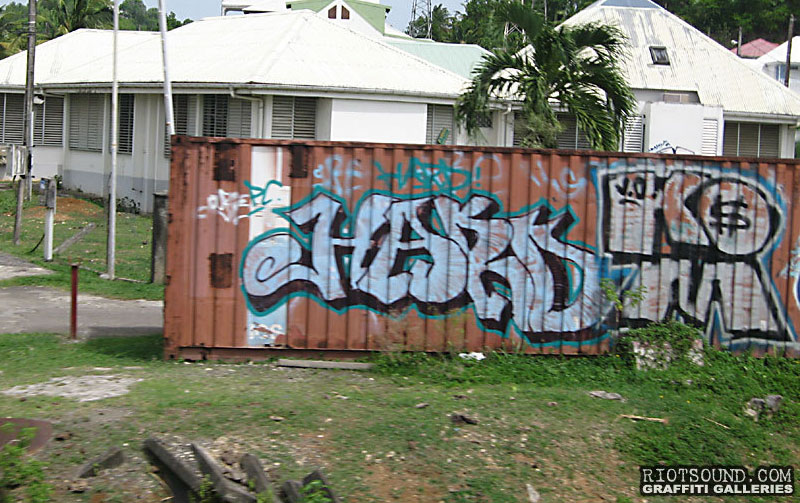
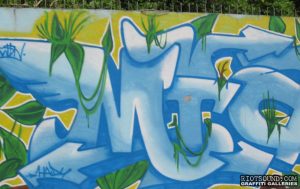
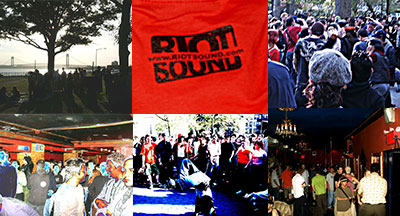
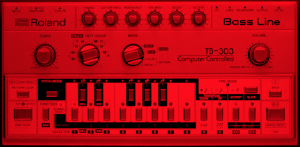














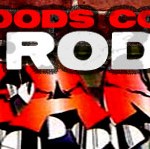
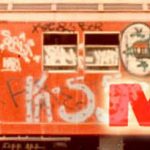

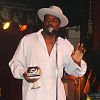
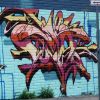

Comments